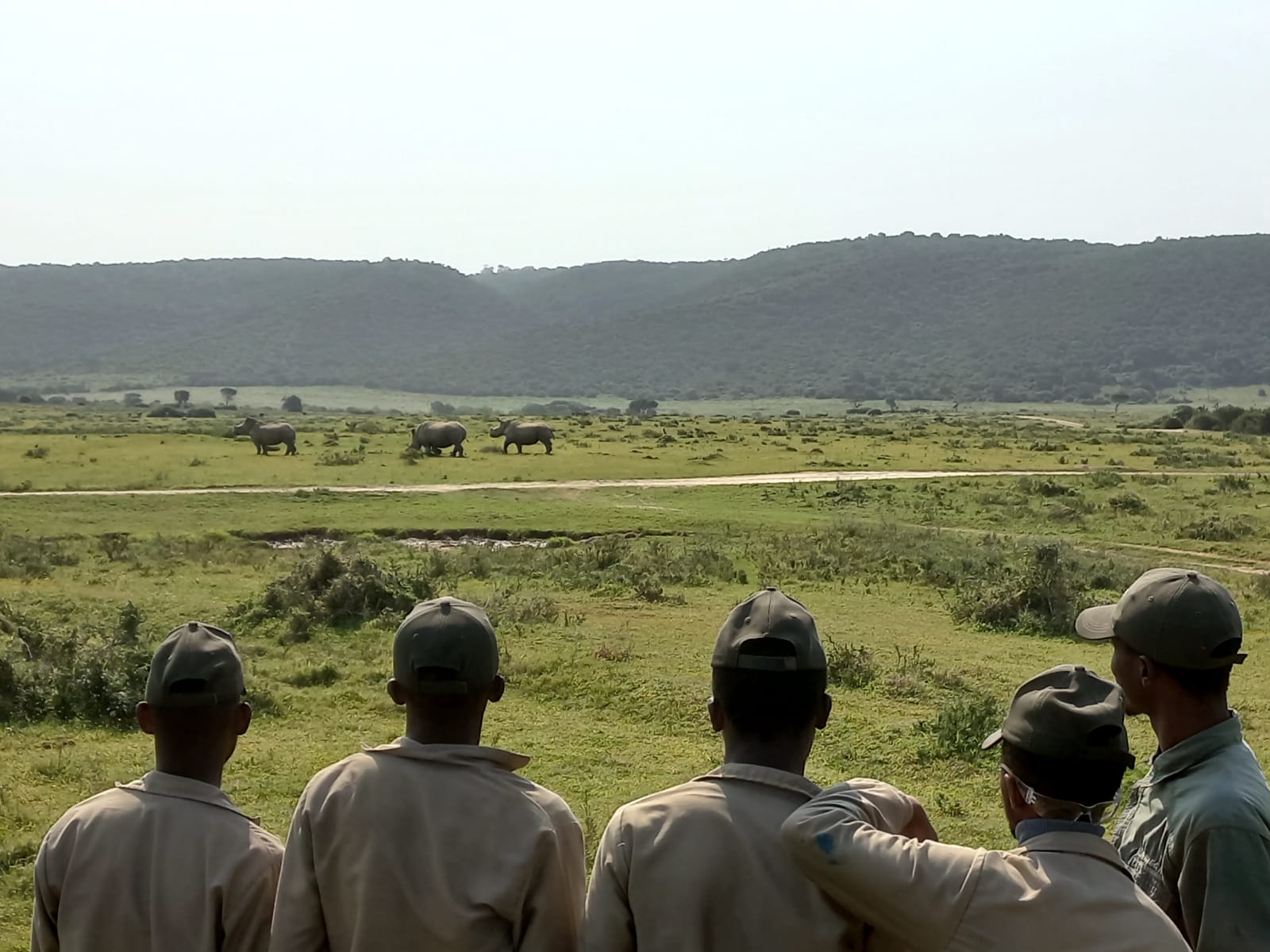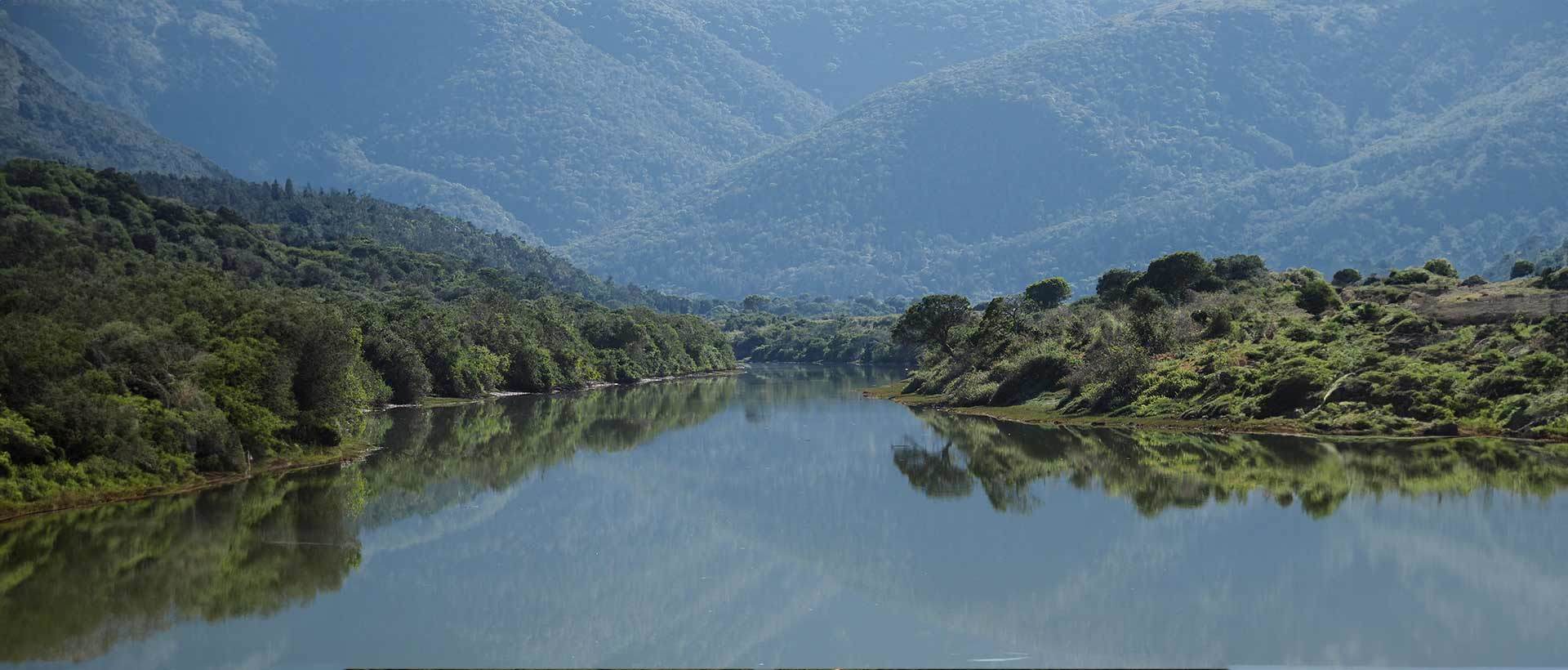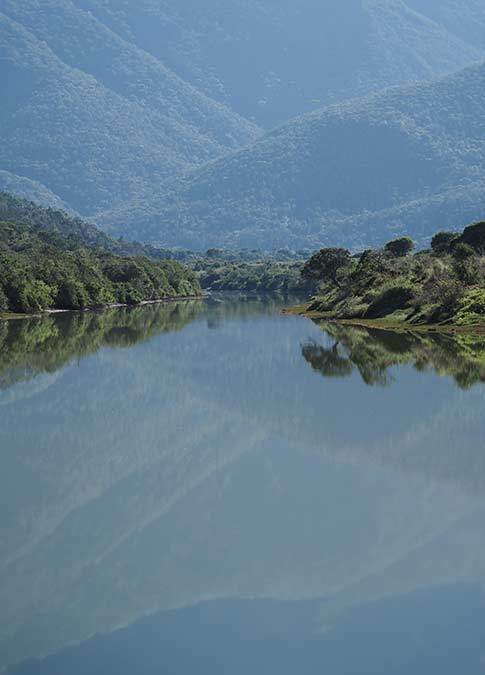Conservation of Biodiversity through Community
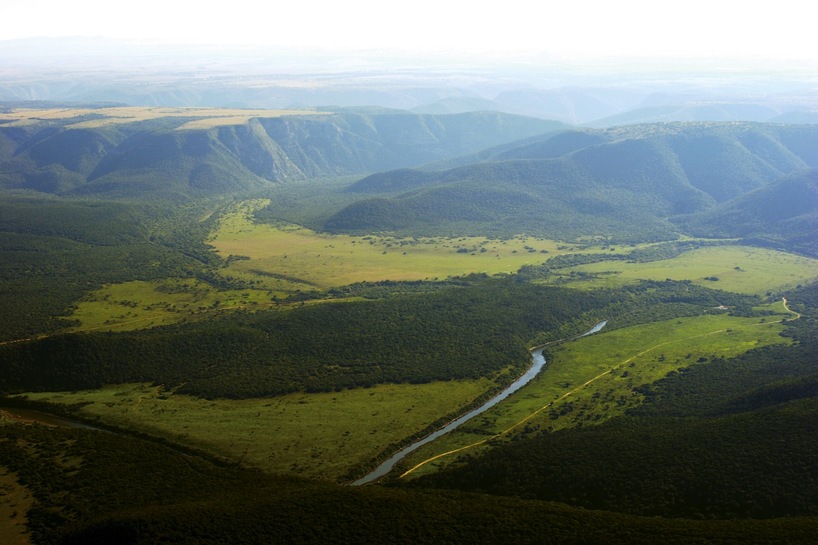
There are 36 places on earth that have been identified as biodiversity hotspots.
Conservation International defines a biodiversity hotspot as a geographic location that is both biologically rich and under significant threat. It must contain a minimum of 1500 plants not found anywhere else on earth and have less than a third of its indigenous/natural vegetation intact.
According to the World Economic Forum Risk Report 2023, biodiversity hotspots account for 2.5% of the earth's surface but contribute 35% of the ‘Ecosystem services’ needed for human survival. One of these ecosystem services is the regulation of climate change.
So, these are the most important locations on our planet to protect and conserve and Kariega Game Reserve is located at the convergence point of 2 out of the 36 biodiversity hotspots: the Cape Floristic Region and the Maputuland-Pondoland-Albany biosphere.
The Kariega Foundation works in partnership with Kariega Game Reserve with the purpose of ensuring the sustainable conservation and protection of this critically important landscape. By harnessing the influence of eco-tourism, both awareness and funds are raised to support habitat and wildlife conservation; wildlife protection and to advance the well-being of communities that live within and around the expanding borders of the protected area – uniting a conservation community with the collective will to protect and preserve this biodiverse landscape forever.
The Kariega Foundation calls this pioneering approach: conservation through community.
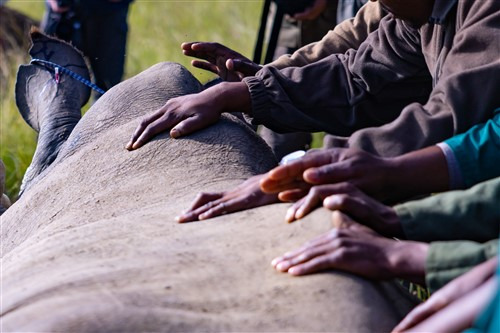
Tomorrow Today Global Joins Our Conservation Community
One of the Kariega Foundations four fundraising pillars is establishing mutually meaningful and impactful corporate partnerships.
We are delighted that Tomorrow Today Global recently partnered with us and joined our conservation community.
This inspiring organisation is focused on supporting businesses navigating a constantly changing world. They have identified seven 'grey elephants' which are significant yet often overlooked forces of change that have far-reaching implications. They represent major socio-economic, environmental, and technological trends that are visible but often ignored by businesses and society.
One of the ‘grey elephants’ is referred to as ‘Angry Planet’ – a powerful metaphor for the impacts of climate change we are currently experiencing and the anticipated escalation of destruction that will unfold unless we work rapidly and intentionally to tackle climate change head-on.
Through their 1% for the Planet commitment, Tomorrow Today chooses to partner with organisations pioneering innovative and sustainable solutions that address the seven grey elephants.
The Kariega Foundations work in conserving one of the most important biodiversity hotspots in the world, via the unique approach of building conservation through community, fitted the bill.
How Biodiversity Helps Regulate Climate Change
The ‘ecosystem services’ that nature provides for humans includes the provision of food and water; well-being benefits such as recreational activities that reduce stress and the regulation of climate.
The world's biodiverse, natural landscapes offer a nature-based solution to climate change through their ability to absorb around half of greenhouse gases produced through human activities. Over the last 150 years we have destroyed most of these biodiverse ‘carbon sinks’ causing a climate crisis with the risk of the extinction of many species of animals and plants.
According to the United Nations , conserving and restoring natural, biodiverse spaces, both on land and in the water, is essential for limiting carbon emissions and adapting to an already changing climate. About one-third of the greenhouse gas emissions reductions needed in the next decade could be achieved by improving nature’s ability to absorb emissions.
One of ways the Kariega Foundation is improving the efficiency of the landscape under their protection is through Alien Plant Control.
Tomorrow Today is one of the Kariega Foundations partners in the conservation of biodiversity through Alien Plant Control.
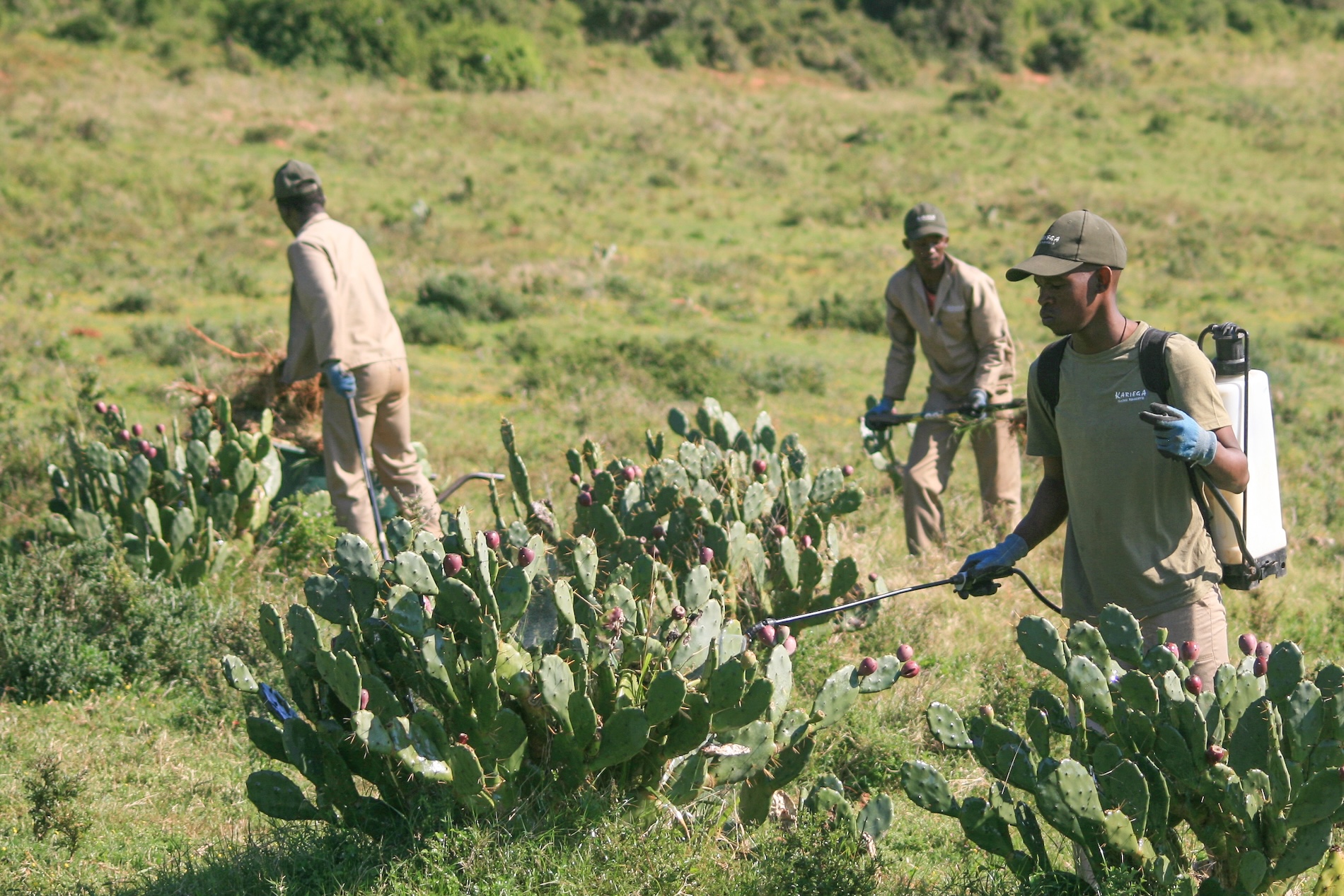
Alien Plant Control is Costly and Work Intensive
The Kariega Game Reserve protected area is currently 11,500 hectares. As recently as 35 years ago this expansive wilderness was owned by 35 different farmers. The gradual knitting together and rewilding of Kariega Game Reserve is one of the most inspiring conservation stories in the Eastern Cape. As a result of human impact over the past 200 years, many alien species have entrenched themselves in the landscape. Two of the most prolific alien species are prickly pear and black wattle.
The eradication of alien plants is resource intensive and costly. The Kariega Foundation has a team of six Alien Plant Controllers (APC team) that work full time within the protected area. These young men live in the communities that border Kariega Game Reserve and are a product of the Kariega Foundations Youth Development Programme. This programme invests in the holistic development of our youth through social, emotional learning; environmental education; sport; access to learning via IT and skills development.
The APC team are trained in alien plant identification, chainsaw operation (certified qualification) and administering herbicides.
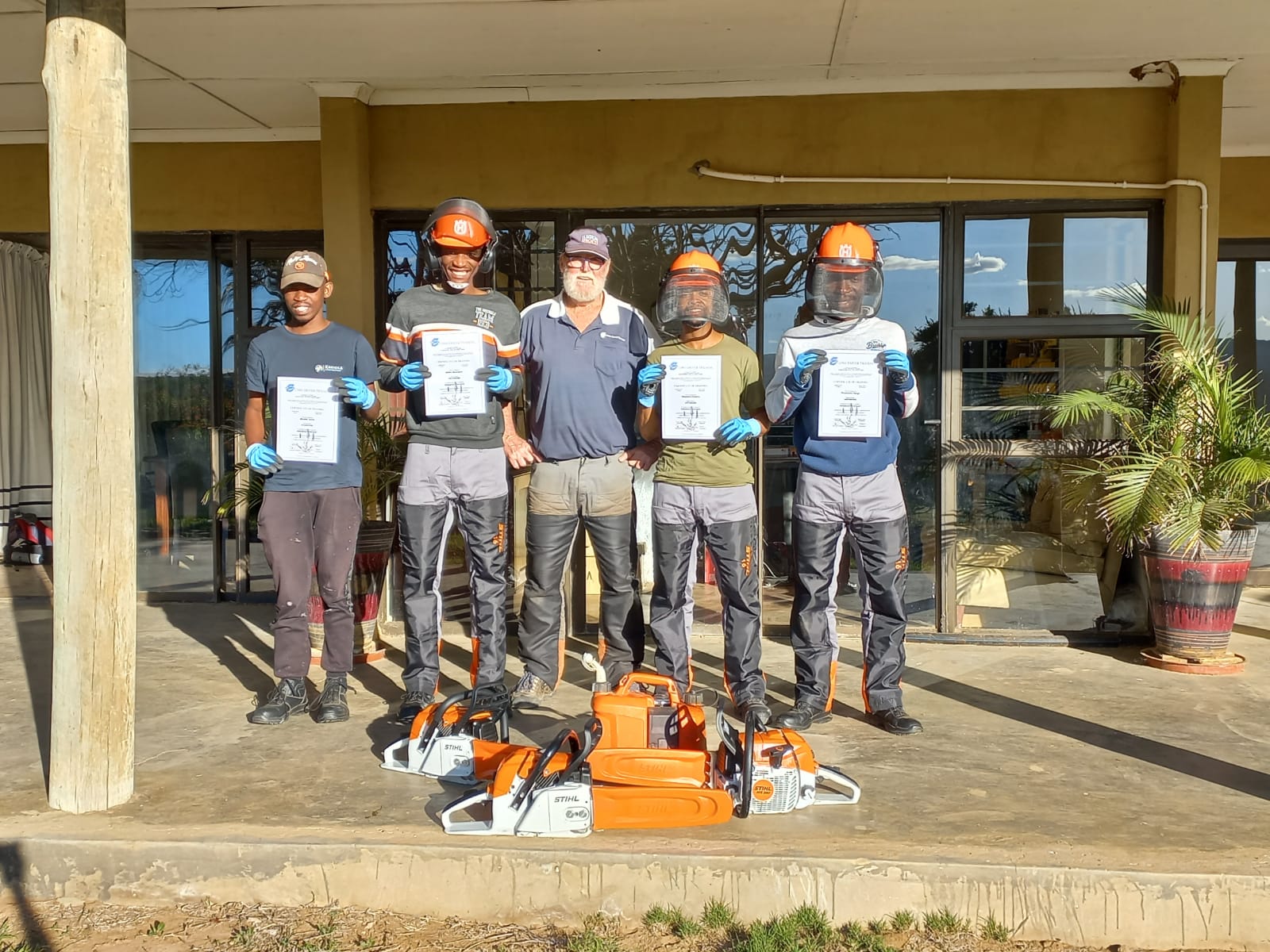
Alien Plant Control is not only critical to our planet and increasing the efficiency of the ecosystem in regulating climate change, but it is also a driver of economic growth and employment.
It is just one of the many ways the Kariega Foundation is actualising its vision of building a conservation community that works collectively to rejuvenate our planet, people and wildlife.
We are excited that Tomorrow Today has joined our conservation community and grateful for their support.
How Can You Join Our Efforts?
The Kariega Foundation is actively engaged in a wide range of projects across habitat management, wildlife management, wildlife protection and community education, welfare and development. Please read our 2023 report.
We raise funds to support and promote our work in conservation and community via eco-tourism and partnerships with like minded individuals, non-profit organisations and corporate companies.
We believe in building lasting relationships and developing sustainable fundraising models with our partners that support projects that speak to the goals and objectives of all stakeholders.
If you would like to become our partner in building conservation through community in one of the most biodiverse regions of the world please contact our CEO, Lindy Sutherland.
In the words of the great Sir David Attenborough:
“It is surely our responsibility to do everything within our power to create a planet that provides a home not just for us, but for all life on earth. If working apart we’re a force powerful enough to destabilise our planet, surely working together we are powerful enough to save it.”
